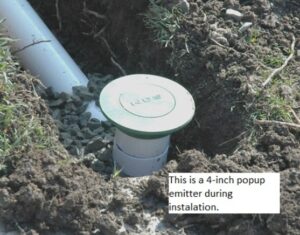When you hear the term testing equipment, you might picture a high-tech lab filled with blinking machines and complicated wires. And yes, sometimes that’s exactly what it looks like. But the truth is, testing equipment is all around us—even if we don’t always notice it. Whether it’s the machine checking your blood pressure at the doctor’s office or the device that ensures your car’s brakes work correctly, testing equipment plays a big role in making sure things are safe, accurate, and reliable.
If you’re new to the world of testing equipment or work with a testing equipment manufacturer, this blog is here to break it all down in a simple, easy-to-understand way. We’ll also share some helpful advice along the way so you can feel confident in choosing or using the right tools.
Why Is Testing Equipment Important?
Before we dive into the types of equipment and advice, let’s talk about why this stuff matters.
Safety First: In industries like construction, aviation, or healthcare, using the right testing equipment can literally save lives. It ensures that tools, machines, and systems are working the way they should.
Quality Control: Think of your favorite brand of chocolate. Every bar tastes the same because the manufacturer uses testing equipment to make sure it meets the same quality every time.
Compliance and Standards: Different industries have rules and regulations. Testing equipment helps businesses meet these standards to avoid fines, legal trouble, or product recalls.
Types of Testing Equipment You Might Come Across
There are so many kinds of testing tools out there, depending on what needs to be tested. Here are a few broad categories:
Electrical Testing Equipment: This includes multimeters, oscilloscopes, and power analyzers. They help test voltage, current, and circuit behavior.
Material Testing Equipment: These machines test the strength, flexibility, or durability of materials like metal, plastic, or concrete. Think of how bridges are tested before people can drive over them.
Environmental Testing Equipment: These tools test how products hold up under heat, cold, moisture, or vibration. It’s like taking a product on a world tour of weather conditions!
Medical Testing Equipment: Everything from a thermometer to complex imaging machines falls into this category. Accuracy here is absolutely critical.
If you’re working with or sourcing from a testing equipment manufacturer, they usually specialize in one or more of these categories.
What to Ask Before Choosing Testing Equipment
Not all testing equipment is created equal. Just like you wouldn’t buy running shoes without knowing your size or purpose, the same idea applies here.
What exactly do you need to test? Is it a material, a circuit, or maybe a whole product?
How often will the equipment be used? If it’s every day, you’ll want something durable and user-friendly.
Is it easy to maintain? Testing equipment should be reliable, but also easy to calibrate and service.
What kind of support does the manufacturer offer? A good testing equipment manufacturer will not only sell you the gear but also offer guidance, training, and customer support.
Friendly Advice When Working with Testing Equipment
No need to be a tech wizard to use or understand testing equipment—especially when you keep a few friendly tips in mind:
Start with a manual: It sounds obvious, but many people skip the manual and miss out on helpful features and safety tips.
Training is key: Even simple equipment can give misleading results if used incorrectly. Make sure you and your team are properly trained.
Keep it clean and calibrated: Dirty or uncalibrated equipment can lead to inaccurate results. Create a routine for cleaning and maintenance.
Document everything: Take notes on how the equipment is used, test results, and any errors. This is a great habit and could save a lot of time if issues arise.
Ask questions: If you’re not sure how something works, ask the testing equipment manufacturer. That’s what they’re there for!
Where to Find Reliable Testing Equipment
You can buy testing equipment from local suppliers, online marketplaces, or directly from manufacturers. Each option has pros and cons:
Local suppliers may offer faster delivery and local support.
Online marketplaces might give you more variety, but be cautious of quality.
Direct from a testing equipment manufacturer is often the best way to ensure you’re getting certified products and expert advice. Many offer tailored solutions and product demos, which is a big plus if you’re just starting out.
Final Thoughts
Testing equipment might seem complicated at first, but once you understand what it does and how it fits into your work or industry, it becomes a lot easier to handle. Whether you’re just starting out or looking to upgrade your tools, the best advice is to stay curious, ask questions, and work closely with a trusted testing equipment manufacturer who understands your needs.
Remember, the right testing equipment isn’t just a purchase—it’s an investment in safety, quality, and peace of mind.





More Stories
바쁜 일상 속 힐링의 정답, 출장마사지
What Makes a Great Massage Table? A Friendly Guide for Beginners
피로를 날리는 완벽한 선택, 출장안마